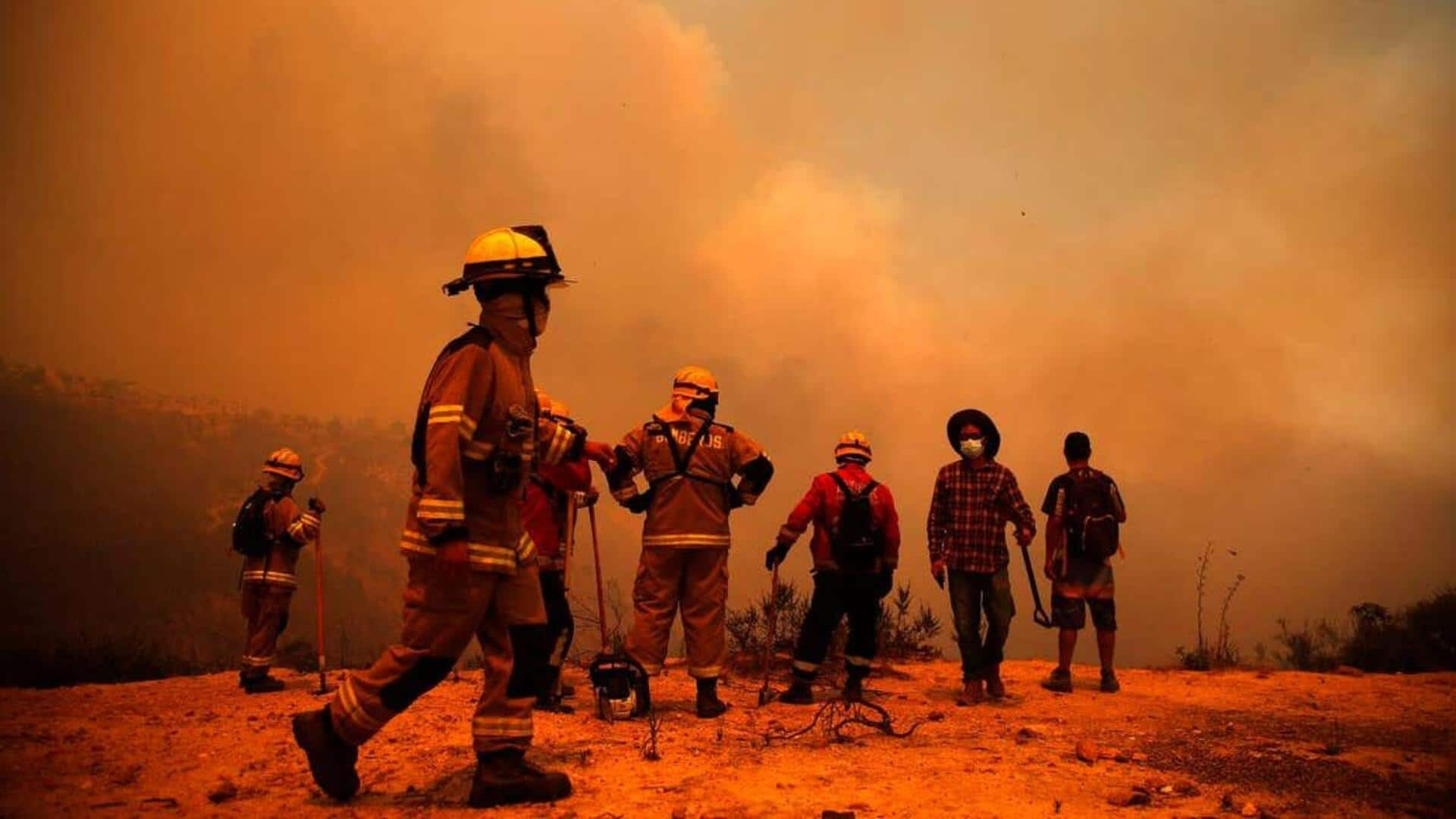
Global warming exceeds critical limit for first full year
What's the story
For the first time ever, the Earth has experienced a full year with global warming surpassing 1.5-degree Celsius, as per the European Union's climate service. Although this doesn't violate the Paris Agreement, it does bring us closer to doing so in the coming years. Professor Liz Bentley, CEO of the Royal Meteorological Society, said urgent action to reduce carbon emissions might still slow down warming, adding that "to go over [1.5C of warming] on an annual average is significant."
Goal
The importance of limiting warming
Keeping long-term warming under 1.5-degree Celsius above pre-industrial levels has become a crucial goal in the global fight against climate change. A 2018 UN report revealed that climate change risks, such as extreme heatwaves, loss of wildlife, and rising sea levels, are much greater at 2-degree Celsius of warming compared to 1.5-degree Celsius. Data from the EU's Copernicus Climate Change Service indicates that temperatures continue to rise at an alarming rate.
Factors
Reasons behind the temperature breach
The primary cause of this long-term warming trend is human activity, particularly the burning of fossil fuels which emit greenhouse gases like carbon dioxide. Recently, a natural climate-warming event called El Nino has also contributed to higher air temperatures by approximately 0.2-degree Celsius. Samantha Burgess, Deputy Director of Copernicus, stressed that "rapid reductions in greenhouse gas emissions are the only way to stop global temperatures increasing."
Worrying stats
January 2024 was the hottest month ever
The year-long 1.5-degree Celsius breach is not the only worrying factor. January 2024 was the hottest month ever recorded, at 1.7-degree Celsius above the month's pre-industrial average. Last month, the average global surface temperature was higher than 1.5-degree Celsius above the 1850 to 1900 average (the time period considered as the pre-industrial reference point).
Future impact
The future of global warming and human impact
If current emission rates persist, the Paris Agreement's goal of limiting warming to 1.5-degree Celsius as long-term average, could be breached within the next 10 years. Professor Myles Allen, lead author of the UN's 2018 report, states that "every tenth of a degree of warming causes more harm than the last one." Researchers emphasize that people can still make a difference in the world's warming trajectory through collective and global choices.